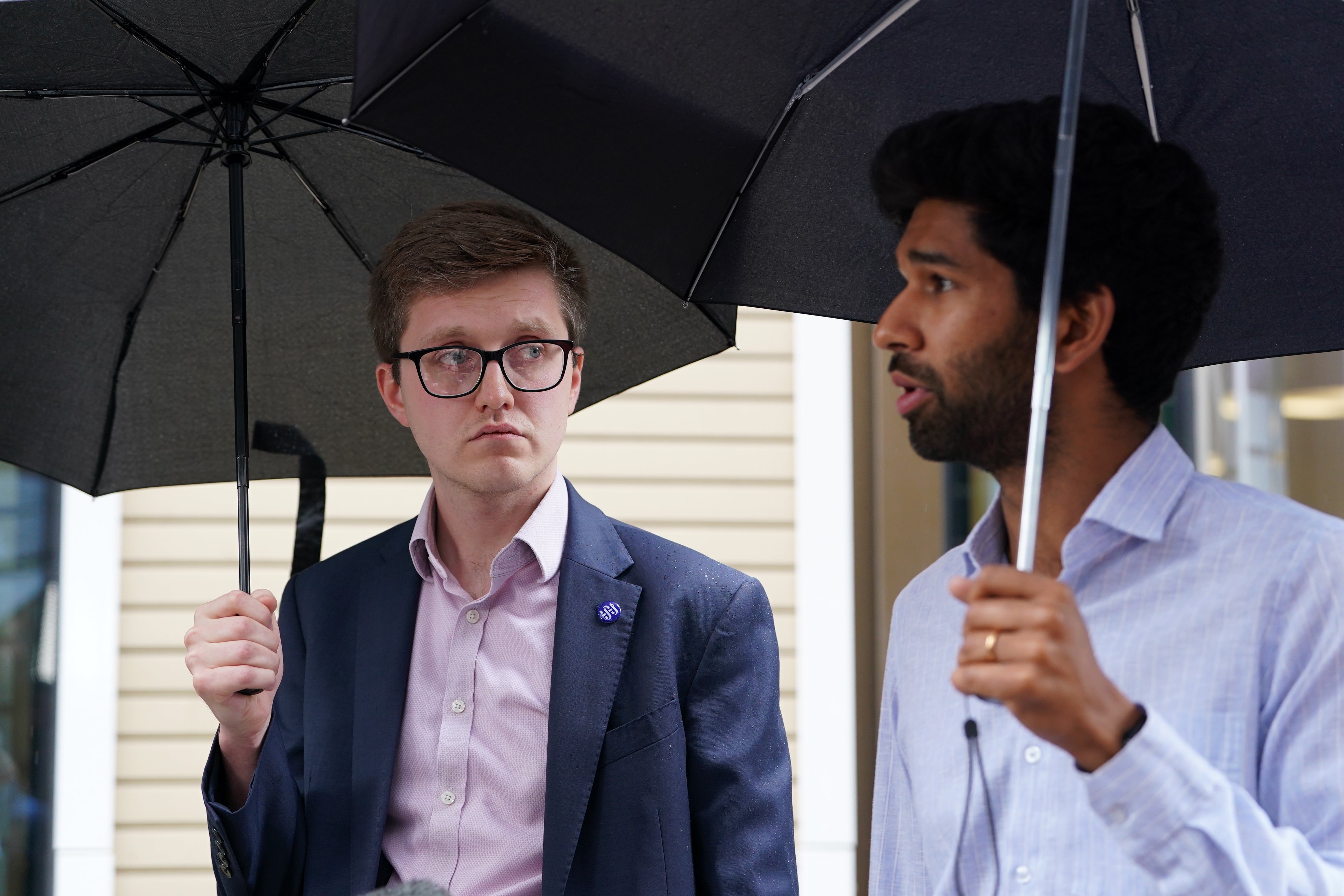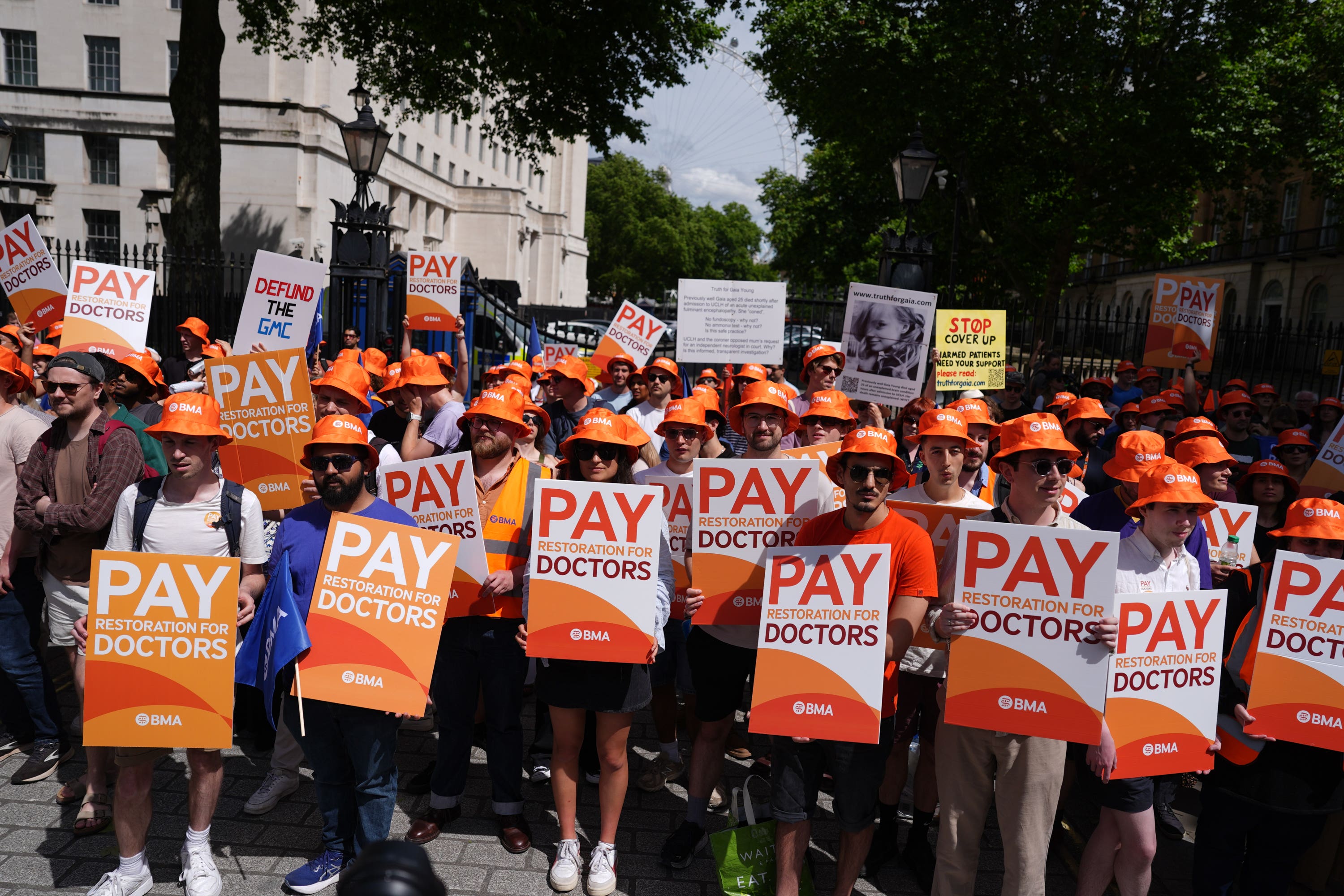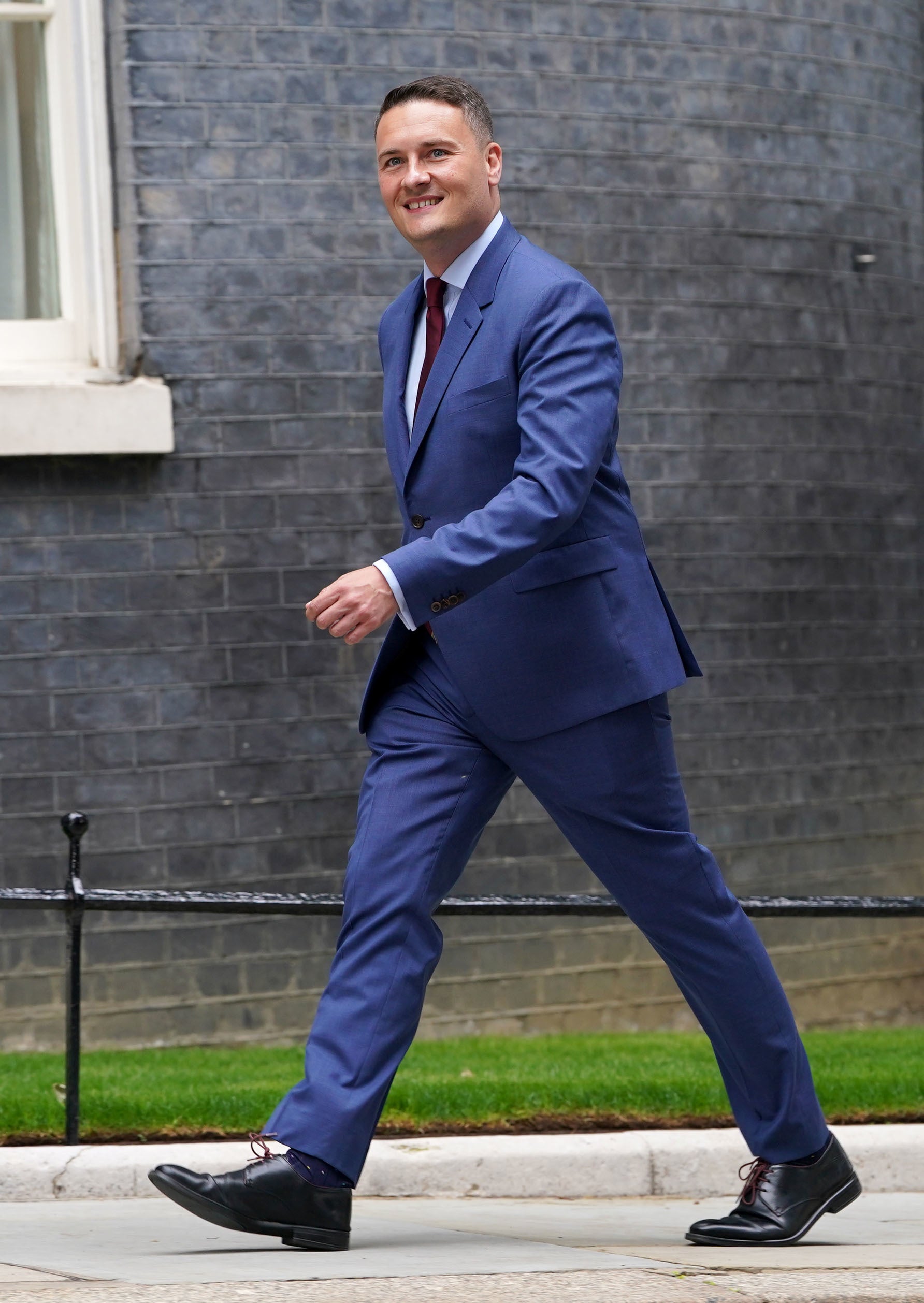Junior doctors hail ‘positive meeting’ with health secretary Wes Streeting
Junior doctors said talks marked a ‘positive first step’ towards ending the industrial dispute, with more negotiations expected next week
Your support helps us to tell the story
From reproductive rights to climate change to Big Tech, The Independent is on the ground when the story is developing. Whether it's investigating the financials of Elon Musk's pro-Trump PAC or producing our latest documentary, 'The A Word', which shines a light on the American women fighting for reproductive rights, we know how important it is to parse out the facts from the messaging.
At such a critical moment in US history, we need reporters on the ground. Your donation allows us to keep sending journalists to speak to both sides of the story.
The Independent is trusted by Americans across the entire political spectrum. And unlike many other quality news outlets, we choose not to lock Americans out of our reporting and analysis with paywalls. We believe quality journalism should be available to everyone, paid for by those who can afford it.
Your support makes all the difference.Junior doctors hailed a “positive meeting” with Wes Streeting on Tuesday, describing it as a “first step” towards ending their long-running dispute over pay.
Dr Vivek Trivedi and Dr Robert Laurenson, co-chairmen of the British Medical Association’s (BMA) Junior Doctors’ Committee said there are no plans for further strike action “at the moment”, with further negotiations expected next week.
It came after Mr Streeting said he was optimistic ahead of the talks with striking junior doctors, describing the change of government as “an important reset moment” in relations between the government and the (BMA).

The newly-appointed health secretary reiterated his stance from the general election that the union’s demand for a 35 per cent pay hike as unaffordable, but said there is “a whole range of issues” beyond pay junior doctors are struggling with.
Speaking at the Tony Blair Institute’s (TBI) Future of Britain conference in London, Mr Streeting said: “Am I optimistic? Yes. This is an important reset moment in the relationship between junior doctors and their government.

“In opposition we were clear the headline 35 per cent pay demand is not one we can afford, and that has not changed,” he continued. “But the reason we were so blunt in opposition… was about showing them the respect they are due, and a key ingredient of respect is honesty.”
Mr Streeting said that aside from pay he will help junior doctors with how they are treated by the NHS, adding that he is “genuinely angry” about their placements, rotations and the lack of flexibility shown to staff.
Medics from the BMA met with Mr Streeting and Department of Health and Social Care (DHSC) officials on Tuesday to find a way of ending strikes that have been causing widespread disruption across the health service.
Following the talks, Dr Trivedi said: “It was a positive meeting, we were pleased to be able to meet the Secretary of State and his team so quickly after the General Election - it signifies the urgency that they’re placing on resolving this dispute which has already lasted 20 months.
“The meeting today was positive and we’ve already agreed to meet again next week with the Secretary of State to further discuss how we can progress.
“Today we talked a little bit about some of the roadblocks that have prevented us from progressing so far, and how we can navigate through those to reach a resolution.
Dr Laurenson added: “This Secretary of State actually wanted to learn what was going wrong and why things were stalling, and we’re happy to have those conversations.
“This meeting was definitely a positive step, but I don’t think we can place of value, or a certainty on how quickly things are going to take to resolve, or what might needs to happen to make things resolve.
“This was definitely a collaborative talk, and I think it’s fair to say we have no plans at the moment to call for strike action.”
Dr Laurenson added: “There were talks about reform, and we’re interested to hear what that might pan out to be. This is a complex negotiation and it’s going to take some time.
“This was a positive first step, but that’s all it was the first step. There’s much more meat that needs to be added to the bones before we’re going to be able to come out with any sort of agreement.”
He added: “Now it’s just down to the Government to be able to come up with a credible offer through the series of negotiations that we’re about to go into.
Dr Trivedi added: “We didn’t come into this meeting expecting a resolution to our dispute - today we were hoping to be heard and to be listened to, which is what happened.
“And we hope to be able to build on that and continue in good faith, as we have always done, but does seem to be reciprocated now, then it does suggest that we will be able to reach a resolution.”
Health leaders have urged the Government to resolve the dispute as a “priority” after it emerged that tens of thousands of appointments had been postponed as a result of the latest strike.

NHS England said 61,989 appointments, procedures and operations were postponed as a result of the walkout from June 27 to July 2.
The strike was the 11th by junior doctors in 20 months after junior doctors complained their pay has been cut by more than a quarter over the last 15 years and have called for a 35 per cent increase.
Also at the conference, Mr Streeting offered a damning verdict of the state of the NHS after 14 years of Conservative government, promising “we are not going to let them forget the damage they have done to our country”.
“What they have had in DHSC is a hell of a lot of instability, and just moving from one health secretary to another, one set of ministers to another, breeds instability and indecision,” he said.
He added: “They also took this country through a deadly pandemic, and they have lacked direction, they have lacked leadership, they have lacked a recognition of the pain that they’ve endured.
“And I think there is again an opportunity for an incoming government to recognise all of those things, but also to lift people’s sights to the horizon and make people excited again about the future.”
Also in the Q&A with broadcaster Jon Sopel, Mr Streeting declared the health department “an economic growth department”. The health secretary said the health of the nation and the economy are “inextricably linked” and promised to not just get people back to health, but back to work as well.
“We will not only be enabling people to live well and to live well for longer, but to contribute more to our country,” he said.

Join our commenting forum
Join thought-provoking conversations, follow other Independent readers and see their replies
Comments